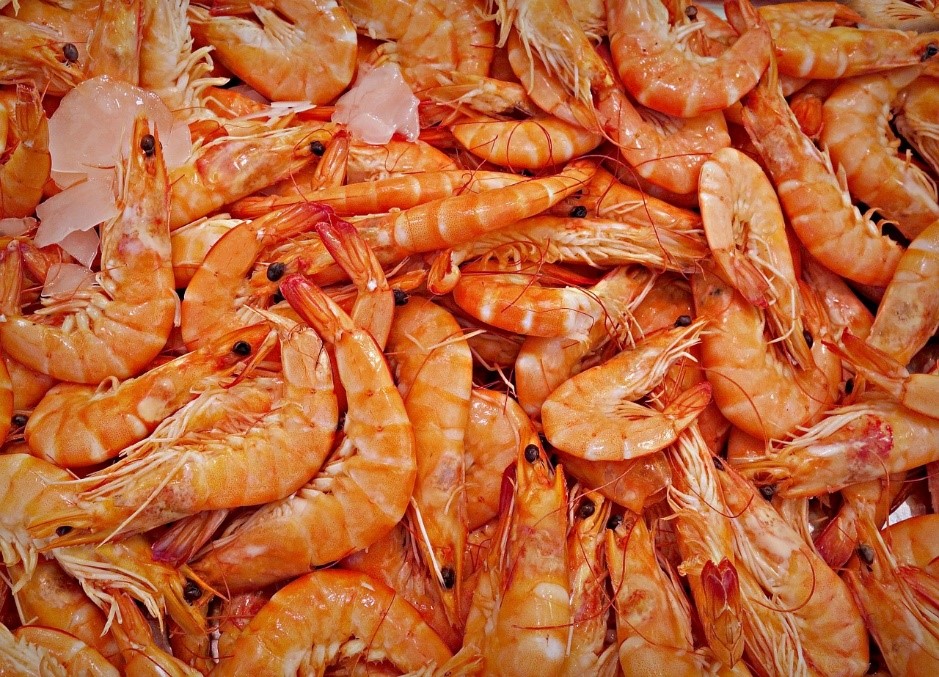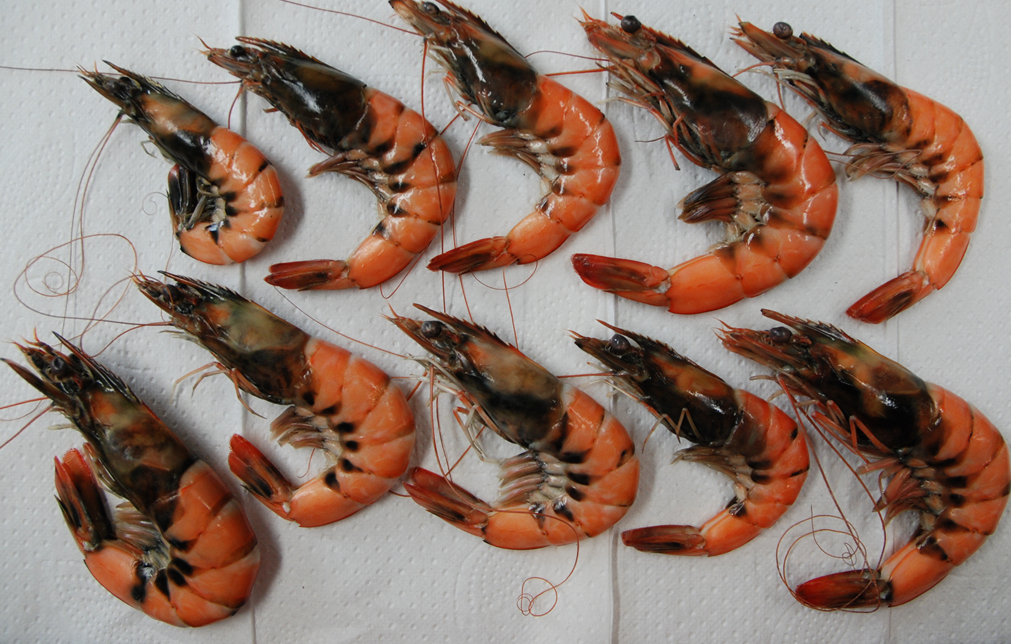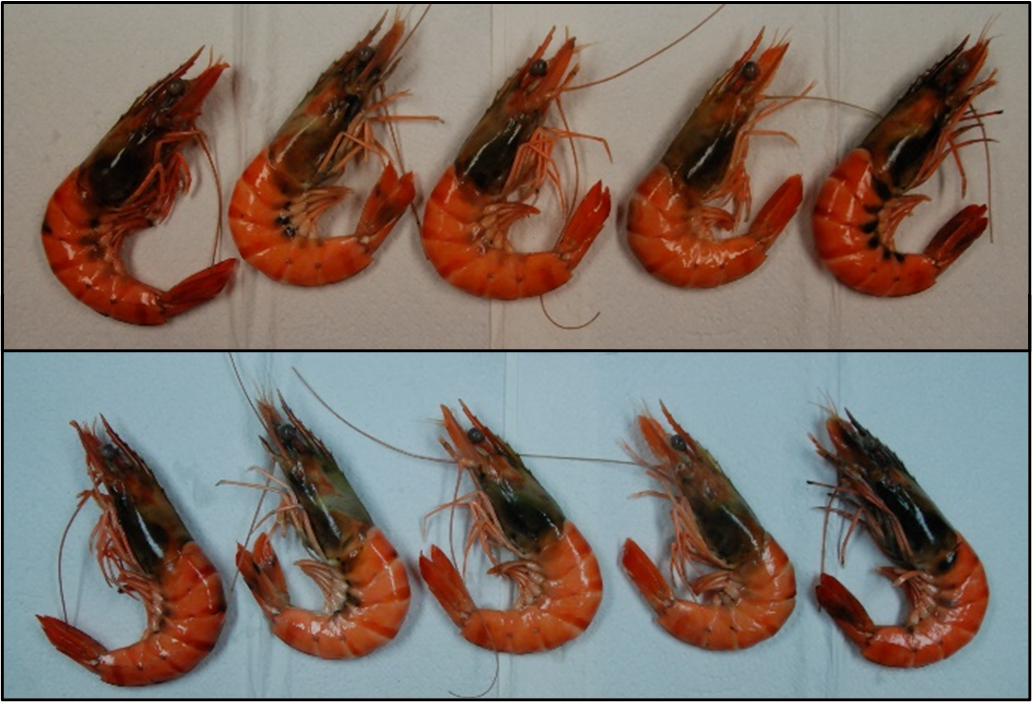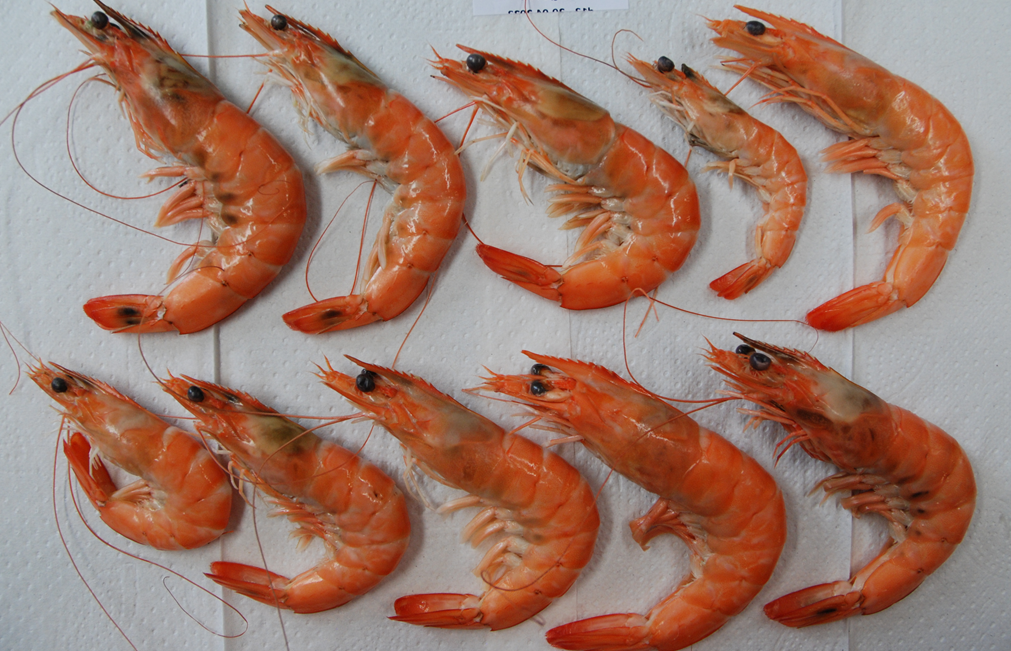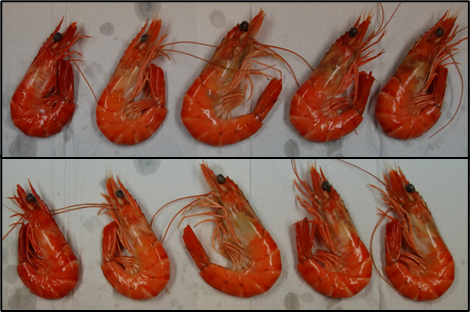Motivation
Shrimp represent the second-largest individual market in global fisheries and aquaculture, with a turnover of over 40 billion USD. A major problem within the shrimp supply chain is "post-mortem" melanosis (from Greek: melas meaning "black") in whole crustaceans. This effect is based on the enzymatic reaction of polyphenol oxidase, a natural feature of the shrimp's immune system, catalyzing the reaction driving melanin production (black pigment). As a result, black discolorations appear on the heads and shells of the shrimps. Although the melanin produced is completely harmless to consumers, the appearance of the food is unappetizing, which drastically reduces its market value also resulting in food wasting. To counteract this chain of events, producers use the synthetic food additives E586 (4-hexylresorcinol) and E223 (metabisulfite) during harvest procedure. Their use however is controversial, as they can disrupt the flavor and cause health issues for both producers and consumers. Furthermore, certified agricultures that practice a sustainable production of organic shrimps in accordance with the standards of Naturland e.V. the application of metabisulfite is prohibited. These farmers, that are engaged in preserving animal and consumer welfare and care of their environments are lacking a natural bio-based solution. In consequence, the production areas in Southeast Asia and Latin America suffer an immediate loss of value for their harvest due to the black discoloration of their shrimp.
 Fraunhofer Institute for Molecular Biology and Applied Ecology IME
Fraunhofer Institute for Molecular Biology and Applied Ecology IME